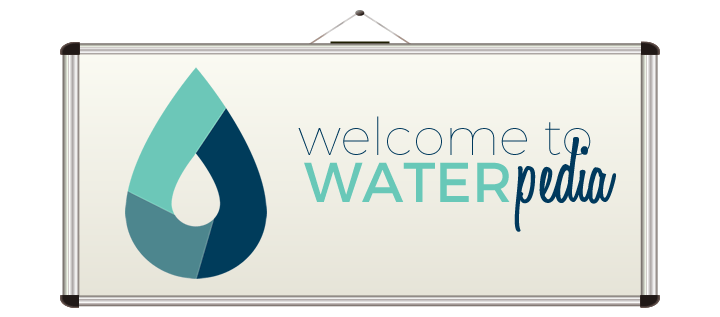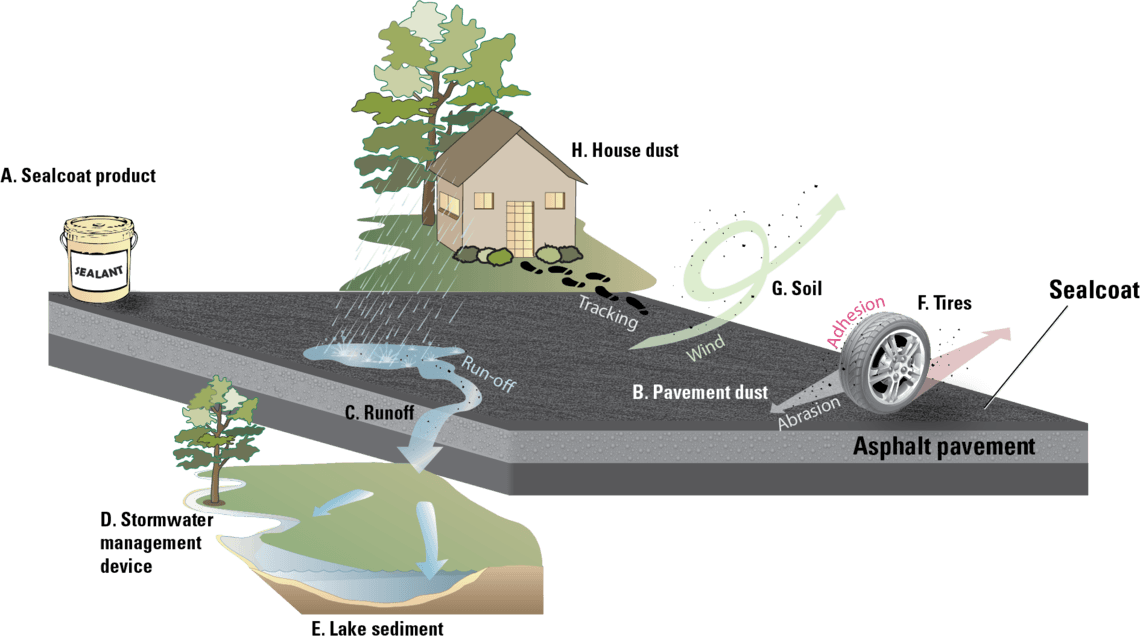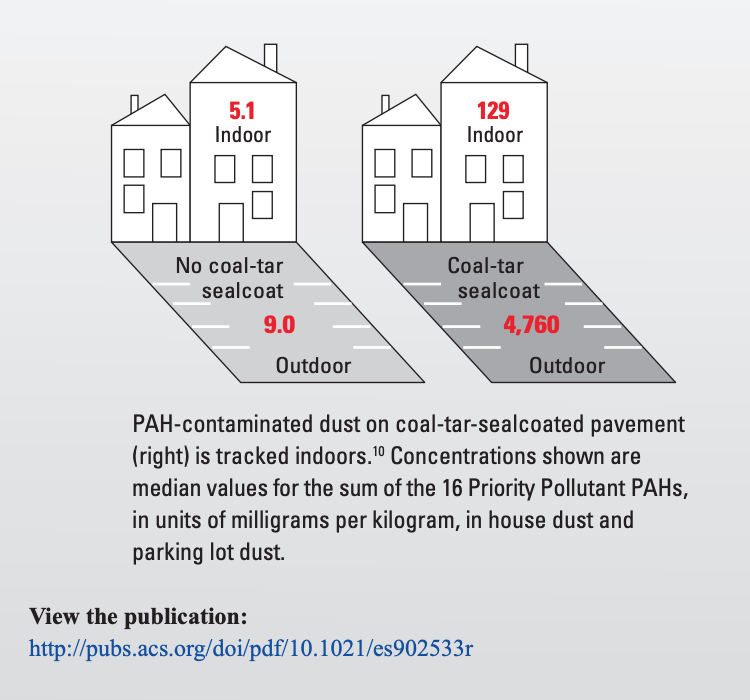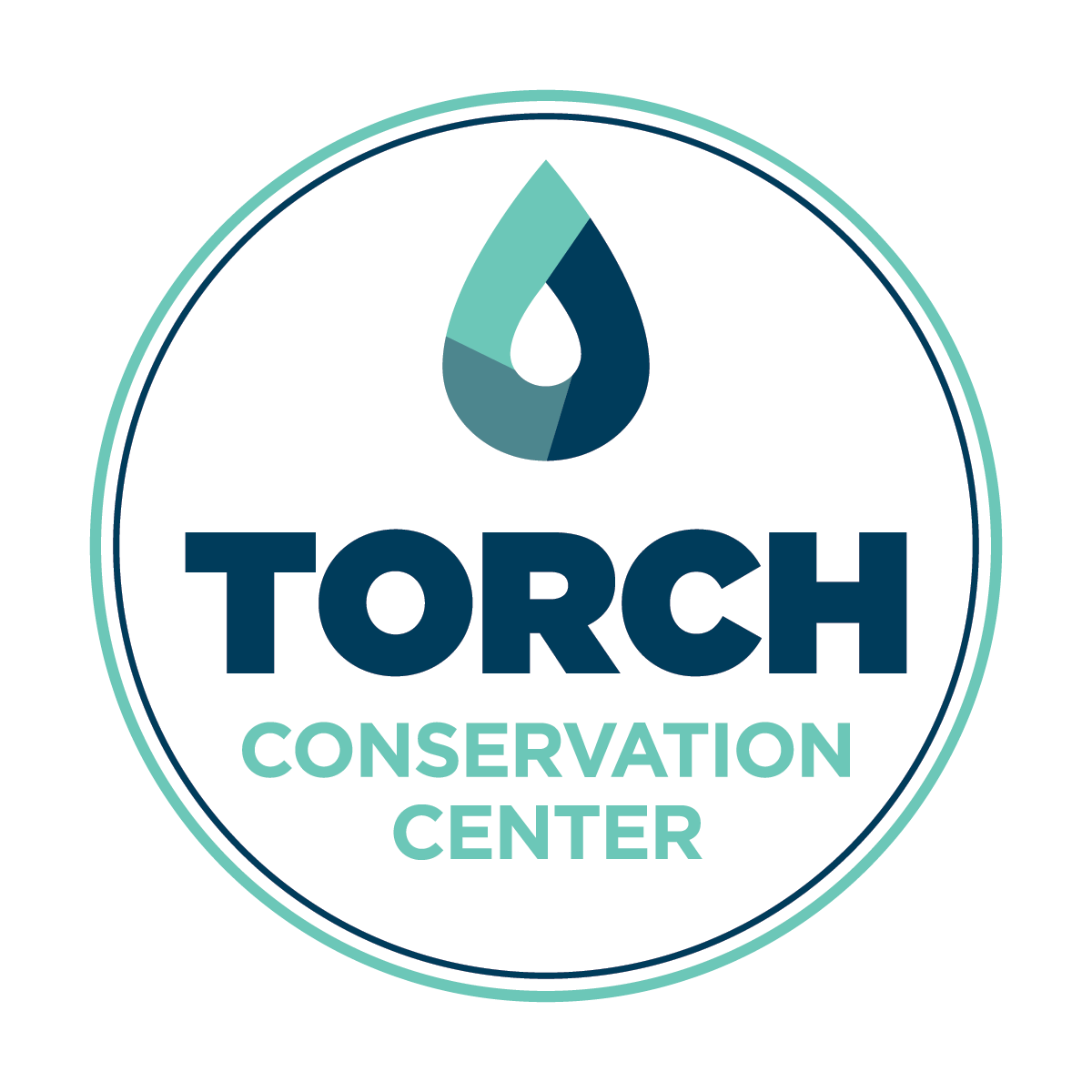
Coal Tar Sealant- An Avoidable Toxin
Key Facts
Most black top sealants contain coal tar— using any of these ingredient names:
tar, coal tar, refined coal tar, refined coal tar pitch, coal tar pitch volatiles, RT-12
Coal tar contains polycyclic aromatic hydrocarbons, PAHs.
It is the aromatic part of PAH that smells bad on newly coal tar sealed driveways.
As you drive on your coal tar sealed driveway, dust is released. This dust contains PAHs.
Dust with PAHs is
- Blown by the wind enters your lungs, your house, your neighbor’s house and the lake
- Tracked on shoes into your house, floor and rugs
- Carried in stormwater into feeder creeks and Torch Lake directly
PAHs are harmful to you, your family—especially young children and to aquatic creatures.
The United States Geological Survey estimated the excess cancer risk for people living adjacent to coal tar sealcoat pavement was 38 times higher, on average, than for people living adjacent to unsealed pavement.
Most PAHs do not dissolve in water but collect in the bottom sediment where they move up the food chain to fish, including fish we like to eat.

Spraying coal tar
Photo: USGS

Pathway of PAH
Credit: USGS
How does this threat impact you and Torch Lake?
- Exposes you and your family to toxins that cause serious health issues
- Toxins in Torch Lake harm fish and aquatic creatures
A United States Geological Survey study found dust contains more PAHs with coal tar sealant than any other driveway surface.

Image: USGS
Did You Know?
With coal tar sealant, you trade dust from your dirt driveway for toxic dust.
Coal tar is the next lead paint health issue.
It is such a serious threat, Ace, Lowes and Home Depot have stopped selling driveway sealants made with coal tar.
Two States have banned coal tar sealant statewide: Minnesota and Washington.
In Michigan, areas that have banned coal tar sealant:
- Almont
- Ann Arbor
- Hamburg Township
- Scio Township
- Pittsfield Township
- Spring Lake Township
- Van Buren Township
- W. Bloomfield Township
- University of Michigan
- Lake Superior State University
- Kalamazoo College
Show
You Care
We know you want to enjoy the lake for many years (and generations) to come. So, we’ve put together a list of simple steps you can take to reduce the nutrients, sediments and toxins flowing into the lake and its streams.
PAHs do not breakdown easily so they remain in the environment for a long time like dioxins and PCBs (see Eat Safe Fish Guide).
Step 1. Keep your paths and driveways pervious. ( Link to web page in SYC)
Step 2. If you have a black top driveway:
Do NOT coat with coal tar sealant. Instead use an asphalt-based sealant, containing very little PAHs.
Plant a Rain Garden Near Driveways, (link to Rain garden in SYC) around the driveway or in a depression running from the driveway to catch and filter stormwater run-off.
WATERpedia: the “One-Stop Shop” for Water Science A-Z
A-E
F-M
N-S
T-Z
Don't just wish that Torch Lake will stay blue.
Choose a water-friendly lifestyle - make a difference!
